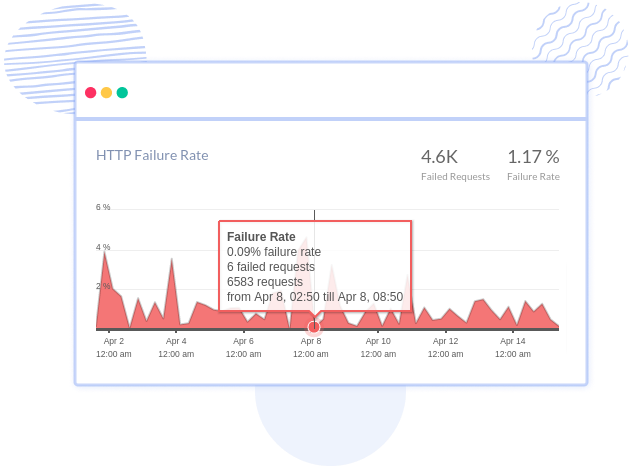DNS Monitoring
Constantly monitor your DNS for server downtime, performance fluctuations, and unauthorized changes to DNS records.

Enhanced Network Uptime
Detect and troubleshoot potential network outages with DNS monitoring. Identify and resolve issues before they impact users, ensuring unparalleled network uptime and reliability. Maintain continuous availability of your DNS servers for a seamless online experience.

Early Detection of DNS Issues
Atatus enables the proactive management of your network by detecting issues such as slow response times, failed lookups, and load balancing problems. With DNS monitoring, anticipate and address problems before they escalate, ensuring high availability and optimal performance for your infrastructure.

Boost Website Security with DNS Monitoring
Secure your website by identifying unauthorized changes to DNS records with our product. Early detection of these changes can thwart ongoing attacks, preventing further damage. Optimize your DNS infrastructure's performance for faster website loading times, enhanced user experience, and improved search engine rankings.

Maximize your DNS Server Efficiency using Assertion
Monitor the performance of each DNS server in different geographic regions and adjust load balancing strategies dynamically based on real-time conditions. Explore load balancer health, server performance, and DNS server latency to conduct a comprehensive server analysis. Identify load distribution imbalances, optimize server resource utilization, and promptly troubleshoot latency bottlenecks. Ensure your DNS servers operate at peak efficiency, providing a responsive and reliable online experience.

Monitoring Internal and External DNS Requests
Maintain a robust DNS infrastructure by actively monitoring internal service discovery and external DNS resolution. Verify both internal service discovery and external DNS resolution, automating tests for resolvability and optimal lookup times across various record types. Distinguish widespread DNS outages from regional issues by running tests from managed locations.






 +1-760-465-2330
+1-760-465-2330


